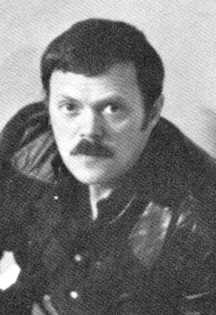 |

|
|
Jesse Monteagudo's Book Nook
A Novel by Daniel Curzon |
|
Only the Good Parts, A Novel by Daniel Curzon; Xlibris Corporation, PO Box 2199, Princeton, NJ 08543-2199, www.Xlibris.com; 436 pages; hardback, $25.00; paperback, $12.95.
Since then Curzon has written many books, plus plays and country songs, tried his hand at publishing, ran the International Gay News Agency, and taught English at City College of San Francisco.
I met Daniel Curzon-Brown (his real name) at a gay conference in Tallahassee in 1978, when he was a young author and I an even younger activist. Since then we enjoyed a cordial writer-critic relationship, one enhanced by a steady supply of good books that flowed from Curzon's keyboard. Only the Good Parts continues Curzon's record of good gay literature, though it is not in the same league as Something You Do in the Dark or my personal favorite, Curzon In Love (1988). Still, Curzon is incapable of writing a bad book and Only the Good Parts, though far from perfect, is better than some of the crap that major publishers put out today under the guise of "gay fiction." The plot of Only the Good Parts is very relevant in these days of "family values" and the "Gayby Boom": a gay man having a child, anonymously, with a lesbian couple. The gay man in question, Marc Brandt, is a gay college professor who may or may not resemble the author. (Curzon himself has a son, though he insists the circumstances are different from those in the book.) In spite of his lover Gordon Trench's staunch opposition, Brandt arranges through an intermediary to father a child with Sandra Bower, a lesbian separatist. Curzon's sympathies lie squarely with Brandt, which leave him little to spare for either Trench or Bower, who respectively personify the most vicious stereotypes of a selfish, hedonistic faggot and a fanatical, man-hating dyke. Curzon's refusal to give these people any redeeming qualities - the "midwife" Nan Devine, comes across pretty well by comparison - is unnecessary and only detracts from the book's quality. Only the Good Parts tells its story through letters, faxes, e-mail and a journal that the characters keep or send to one another. Though the use of letters to tell a story is a device as hold as Samuel Richardson's Pamela, or Virtue Rewarded (1740), the use of faxes and e-mail is new and very relevant. In fact, one of the subplots of Curzon's novel, sending false information via e-mail, is being played out in Curzon's own life. Outraged by attacks against him posted in a student-run website, Curzon joined other professors to sue City College for providing links to the offending site. A decision on this case, as in so many others dealing with the Internet, will surely open a Pandora's Box of controversy, litigation, and censorship. Only the Good Parts, to quote the blurb, features "comedy, pain, hedonism, fanaticism, loves, hatreds, accusations, both clever and cruel deceptions, the paternal vs. the maternal, the very latest of the modern and the oldest of the human." The characters are screwy and the plot exasperates from time to time, but the themes are relevant and the story holds the reader's attention more often than not. Curzon, whose (nongay) play So Middle Class won the 1998 One Act Marathon Playwriting Competition, wrote this book like a dramatist, and Only the Good Parts works well as a series of concurrent monologues. If nothing else, Only the Good Parts might prove whether or not a book sells, in this Computer Age, without the benefit of book stores. Stay tuned and find out. Now and Then, a novel by William Corlett; Alyson Books; 346 pages; $10.95; does not need any publicity from me. It has been doing well since it was first published in England in 1995, when it won the Dillons First Fiction Award. The American edition, by Alyson Books, seems to be well received, at least according to the favorable reviews sent by happy readers to Amazon.com. Now and Then is the story of Christopher Metcalfe, a London book editor. Now a sour old bachelor of fifty, Metcalfe experienced the love of his life during his "public" school years, when "Kit" Metcalfe met and loved Stephen Walker, an older school mate. Corlett's depiction of Kit's love for Stephen, and how internal and external homophobia ended the romance and stunted Kit's capacity to love, makes fascinating reading. Corlett moves his plot repeatedly between "now and then"; and the striking difference between the idealistic young Kit and the older Christopher, now a grouchy, middle-aged celibate, shows how a life can be destroyed by antigay prejudice. Now and Then is a fascinating novel, and well-worth the time and price. |
© 1997-98 BEI
 Daniel Curzon
Daniel Curzon